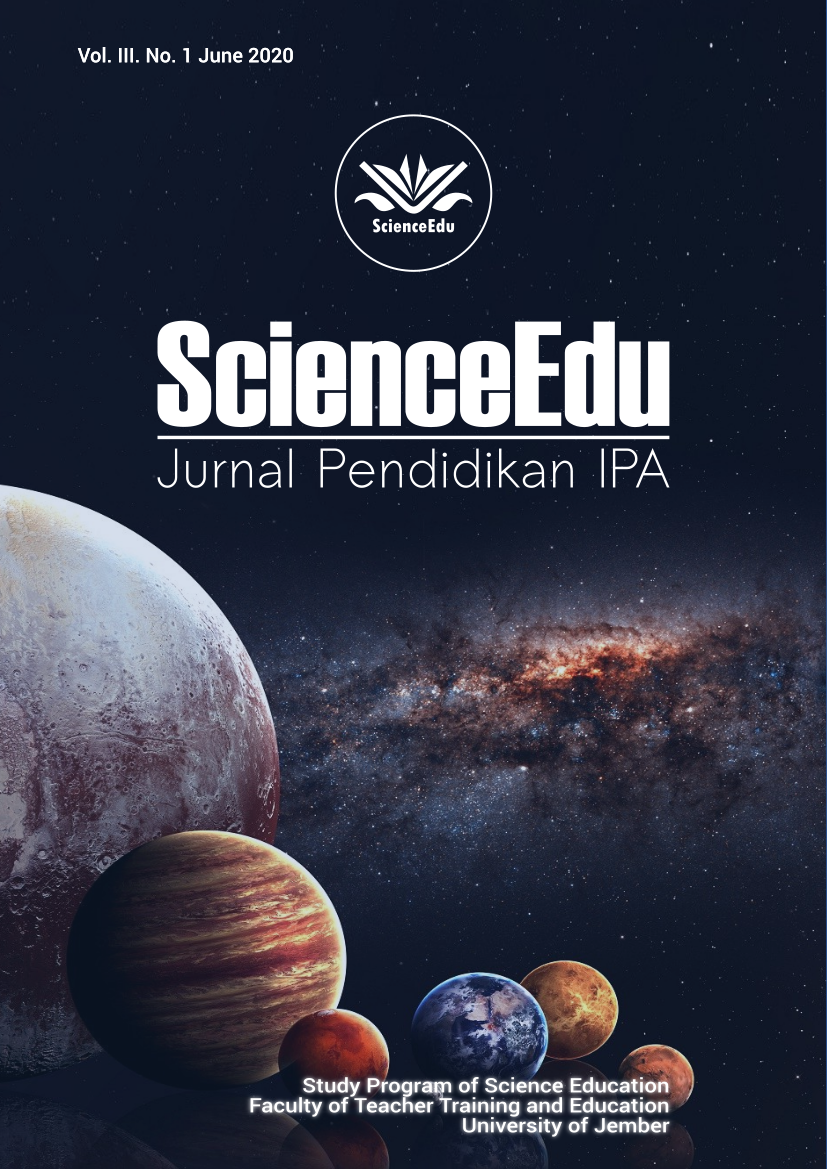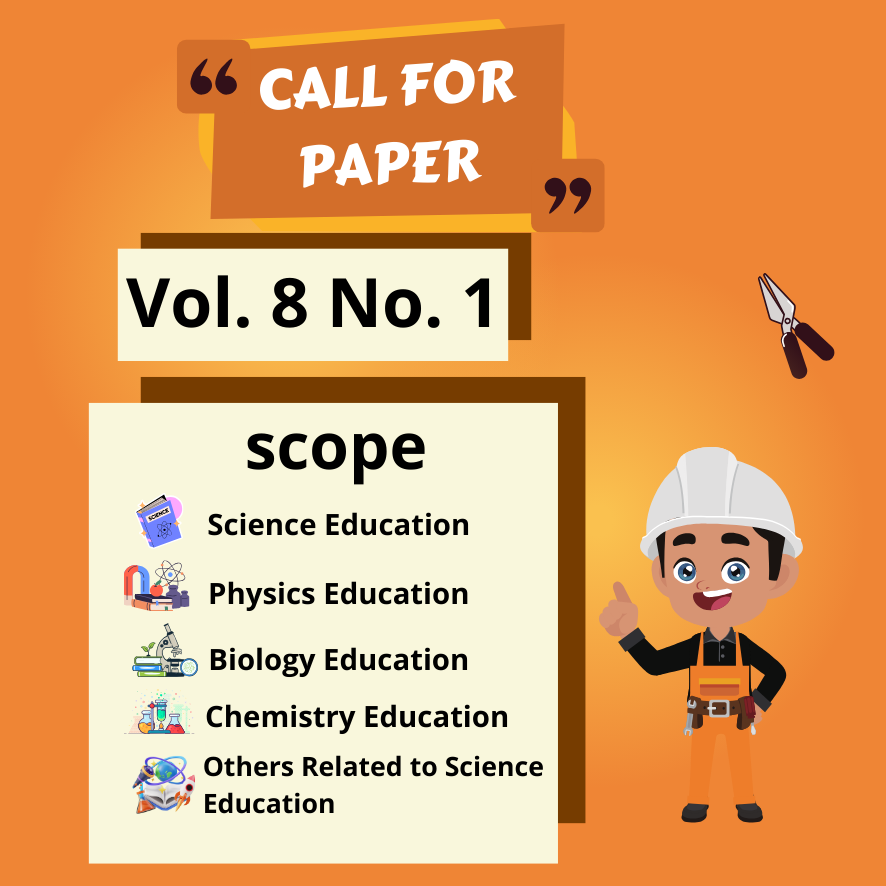THE INFLUENCE OF PROJECT BASED LEARNING MODELS ON SCIENCE TECHNOLOGY, ENGINEERING AND MATHEMATICS APPROACH TO COLLABORATIVE SKILLS AND LEARNING RESULTS OF STUDENT
DOI:
https://doi.org/10.19184/se.v3i1.16589Keywords:
STEM Approach, Project Based Learning, Learning OutcomesAbstract
The main problem in learning science which until now has not yet been completely solved is by the assumption in students that this lesson is difficult to understand and understand. The main factor of this reality seems to be due to the lack of connection in learning science with everyday life. The Project-Based Learning model with the STEM approach (Science, Technology, Engineering, and Mathematics) is very suitable to overcome these problems because the learning process involves students working collaboratively by combining two or more disciplines. This research is a quasi-experimental which aims to determine the effect of the Project-Based Learning learning model with the STEM approach to collaborative skills and student learning outcomes. Assessment of students' collaborative skills is obtained when students work on assignments in groups with the guidelines for the collaborative skills rubric. Student learning outcomes are obtained from pre-test and post-test scores.
Downloads
References
Furi, LMI, Sri, H., and Shinta, M. 2018. Experiments on the STEM Integrated Project Based Learning and Project Based Learning Model to Improve Student Learning Outcomes and Creativity in Basic Competencies in Milk Processing Technology. Journal of Educational Research. Vol 35 (1).
Gustiani, I., Widodo, A., and Suwarma, IR 2017. Development and Validation of Science, Technology, Engineering, and Mathematics (STEM) Based Instructional Materials. AIP Conference Proceedings. PP: 1-7.
Hermawan, Parsaoran, S., Endi, S., Ida, K., Achmad, S., Anggi, HS, and Syarif, RH 2017. Design Rubric of the Ability to Collaborate Middle School Students in Light Reflection Material. ISSN: 2461-0933. Journal of Physics Education Research and Development. Vol 3 (2): 167.
Huang, D., Leon, S., Hodson, C., La, D., Obregong, TN, and Rivera, G. 2010. Preparing Students for the 21st Century: Exploring the Effect of Afterschool Participation on Students Collaboration Skills, Oral Communication Skills, and Self-Effecacy. Los Angeles.
Ismayani, A. 2016. Effect of Application of STEM Project-Based Learning on the Mathematical Creativity of Vocational Students. Indonesian Digital Journal. Of Mathematics and Education. Vol 3 (4): 264-272.
Jauhariyyah, FR, Hadi, S., and Ibrohim. 2017. Science, Technology, Engineering and Mathematics Project Based Learning (STEM-PjBL) in Science Learning. Proceedings of the Postgraduate Science Natural Sciences UM. Vol 2 (2): 432-436.
Milaturrahmah, N., Mardiyana, M., and Pramudya, I. 2017. Mathematics Learning Process with Science, Technology, Engineering, Mathematics (STEM Approach in Indonesia. International Conference on Mathematics and Science Education. PP: 1-7.
Rais 2010. Project Based Learning: Soft Skill Oriented Learning Innovation. National Seminar on Technology and Vocational Education at the Faculty of Engineering, Surabaya State University. December 11th.
Saenab, S., Yunus, SR, Husain. 2019. The Influence of the Use of Project Based Learning Models on Science Education Student Collaboration Skills. ISSN: 2252-858X. Journal of Biology Science & Education. Vol 8 (1)
Slameto 2003. Learning and Factors That Influence It. Jakarta: Rineka Cipta.
Utami, IS, Rahmat, FS, Firmanul, CW, and Anang, S. 2017. Development of STEM-A (Science, Technology, Engineering, Mathematic and Animation) Based on Local Wisdom Based on Physics Learning. ISSN: 2303-1832. Al-BiRuNi Physics Education Scientific Journal. Vol 6 (1): 67-73.



